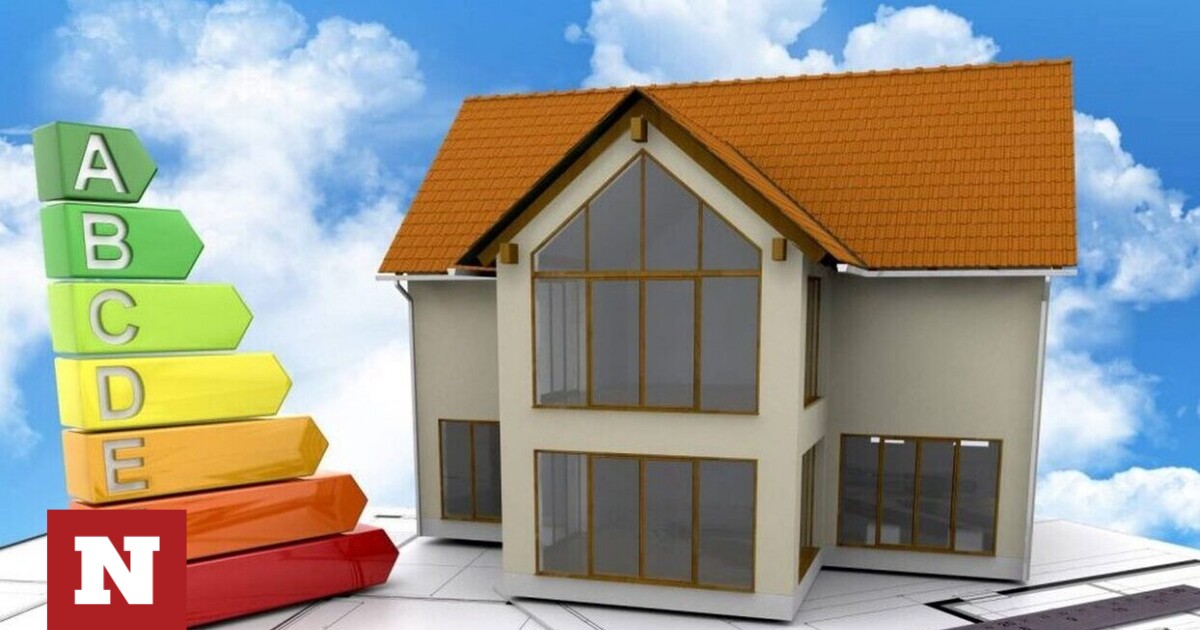
The cost of new “conservation” and modernization of buildings, the role of heat pumps and the new rules of the European Parliament
In the second half of the year, the new “Save 2024” program is expected to go live digitally, with a model but very different from the current residential energy upgrade program, as well as from those of previous years.
According to a publication by OT, a ministry official said that to implement the programme, 700 million euros were secured, in the first phase, from the NSRF and 170 million euros from REPowerEU. According to the same source, the central focus of interventions aimed at improving household energy will be the installation of heat pumps, along with other interventions such as installing insulation, replacing tires, etc.
It is also among the ideas of government energy officials not to set income criteria for participation in the program. “Heat pumps are still too expensive for a poor family, no matter how much support there is,” confirms the Undersecretary of the Ministry of Interior.
Energy services
In addition to abolishing the income criteria, the Ministry of Interior plans to involve energy service companies (ESCOs) in order to facilitate the beneficiaries of “Execonomou 2024”.
The cost of the interventions will be subsidized by a percentage through the programme, while for the same participation of households, energy service companies will facilitate access to financing and provide homeowners with the possibility to gradually repay the cost of the investment. Reducing the expenses of electricity bills that will be included in energy development projects. That is, companies will collect the difference between the old and new tariffs until the investment is paid off.
Central structure
“We plan to centralize the process. That is, today each owner, together with his engineer, individually undertakes projects in his home. Instead, we are thinking of promoting the idea, where companies will represent consumers who will place an order on the new “Exkonamo” platform and through contracts will be paid. From the savings in the accounts,” confirms the Fund’s Executive Director. Ministry of Foreign Affairs.
He also points out that the central structure of the new “Xkonamo” will change in general. In other words, home development will no longer focus on saving energy, but on reducing pollutant emissions, i.e. decarbonization.
At a cost of 70 billion euros
Last Tuesday, the European Parliament approved new rules for the building sector, which is responsible for 36% of greenhouse gas emissions and 40% of energy consumption. The next step will be for the Council of Ministers to approve it so that it can enter into force.
In Greece, based on European directives, by 2035, homes with energy class below “E” must be upgraded, i.e. approximately 1,300,000 homes. If its owners do not carry out the required work, they will not be able to rent it, sell it, or pass it on to their children.
“the hard equation”
“Given that an energy upgrade from two to three classes requires an average of about 25,000 euros, more than 32 billion euros are needed for these buildings alone. A lot of money is needed, perhaps more, because after 2040 we have to Change all gas and oil stoves to heat pumps, and all the networks we now build and support together will become useless.
That is, 70 billion euros are needed only for residential buildings, not for commercial industry buildings, the state. A State Department official suggests that more than 100 billion euros in total may be needed.
The question that arises is: Who will bear the burden of the required investments? Can “save” type programs meet energy renewal needs? The “conservation” budget in the past five years has amounted to about 3 billion euros. But we had a recovery fund. “There is no other recovery fund on the horizon, and if we distribute 70 billion euros over the next 15 years, we will need about 4.5 billion euros per year.”
He concludes: “It is financially impossible. Therefore, private funds must be mobilized. But a person who has a house with an energy class lower than “E” I do not think he has the money to upgrade it. The equation is very difficult.”
*With information from OT
Related news

“Avid problem solver. Extreme social media junkie. Beer buff. Coffee guru. Internet geek. Travel ninja.”





More Stories
Dow Jones rises 654 points
Used Car Travels Around The World – Crashed, Sold For New Car
If it weren’t for the merger of Attica Bank and Bankritia, they could have collapsed.